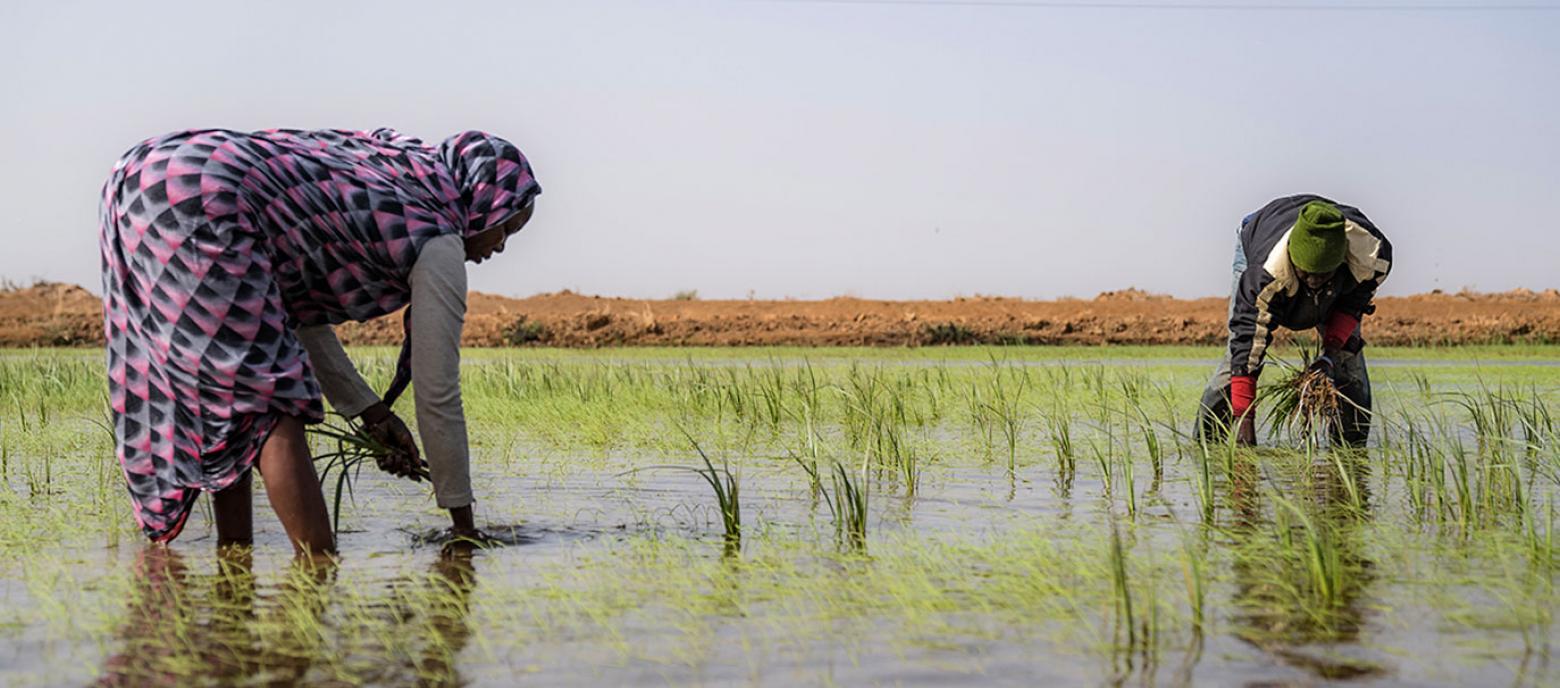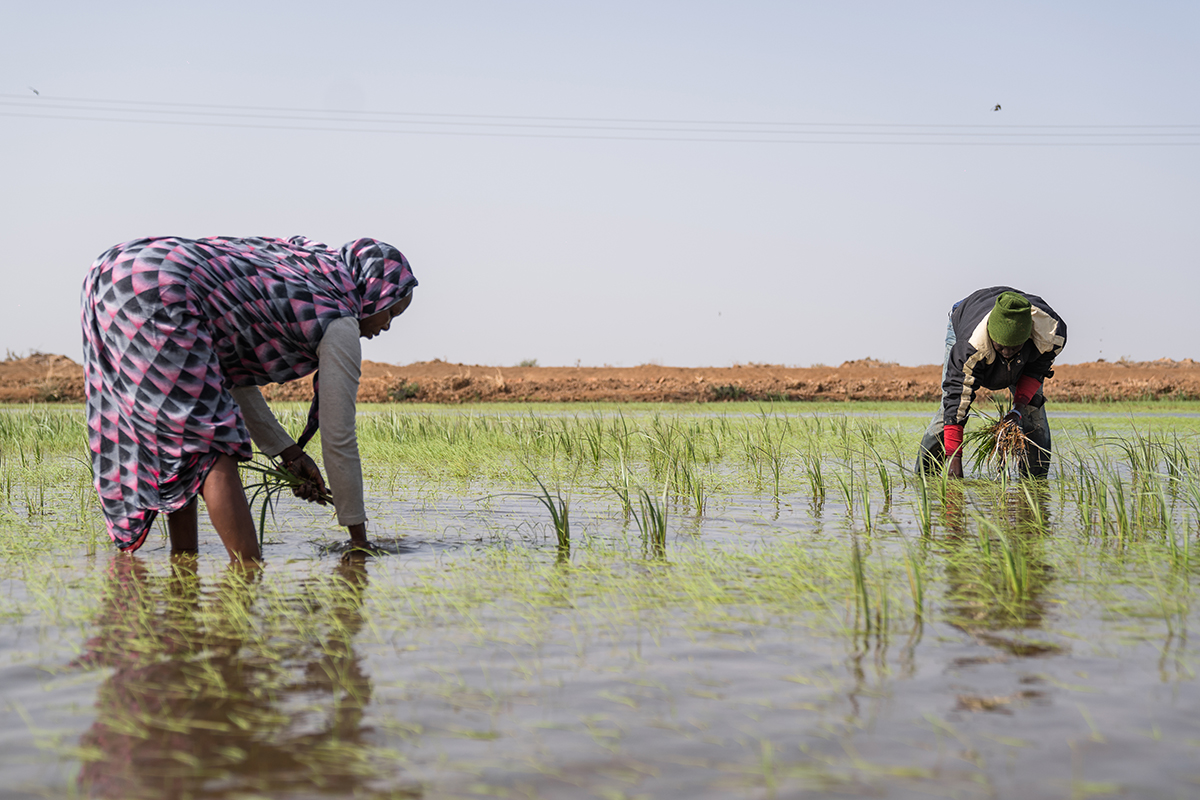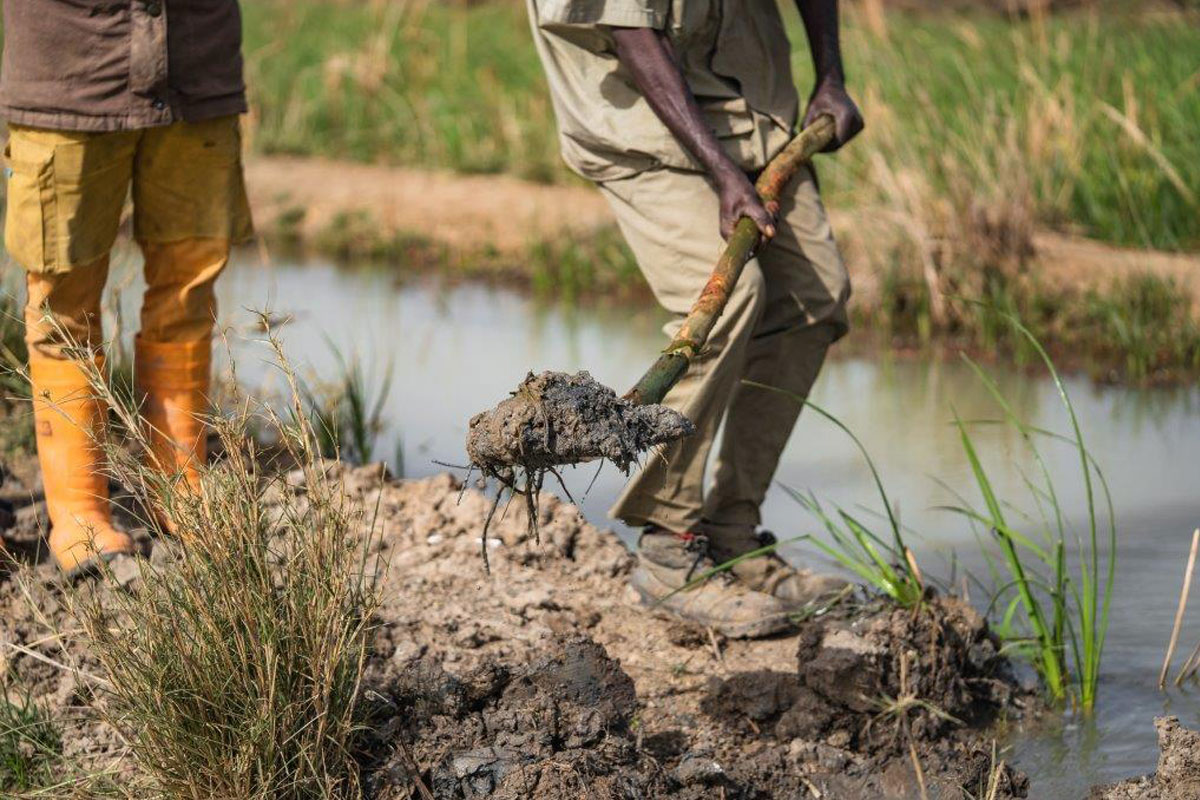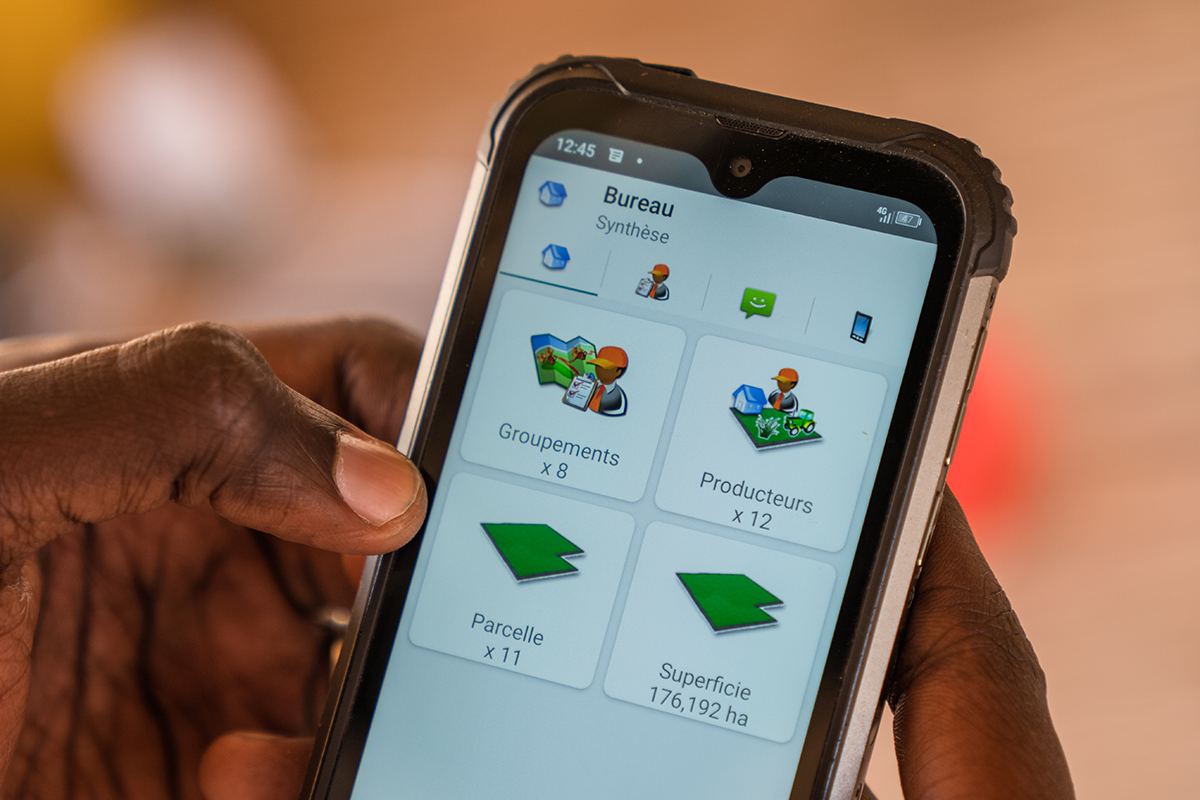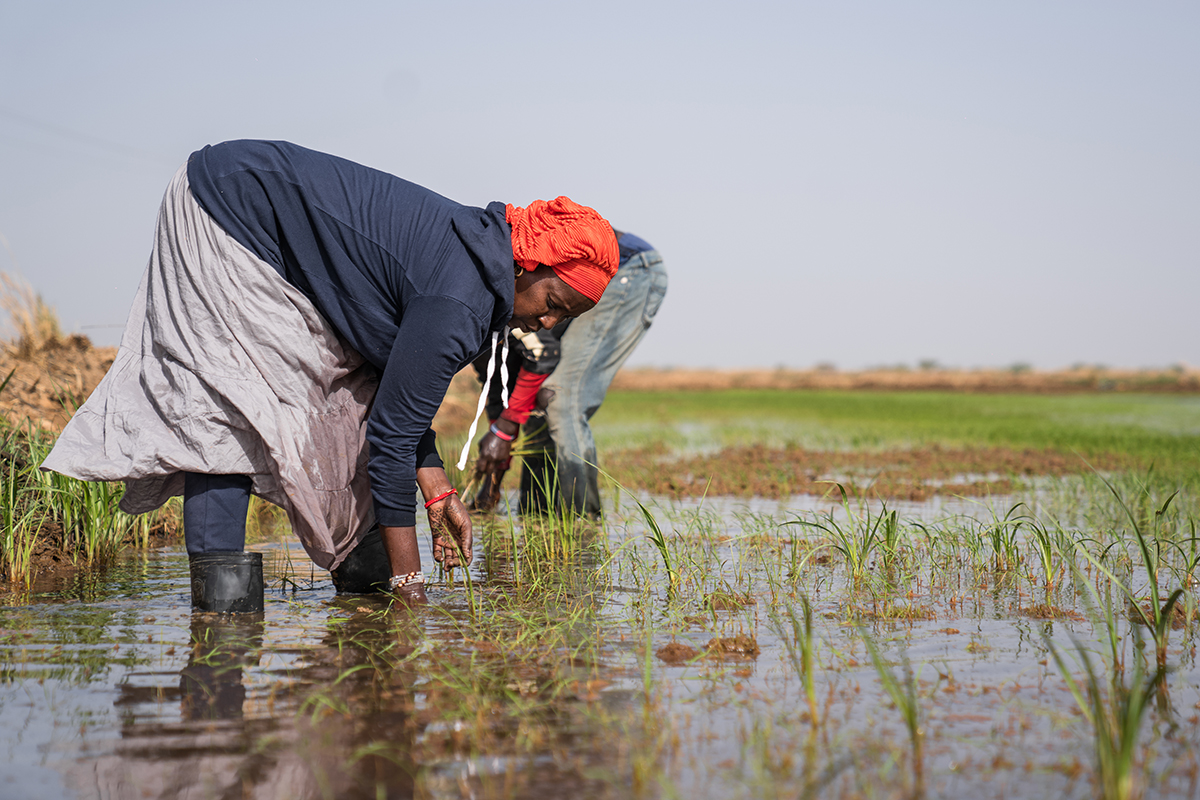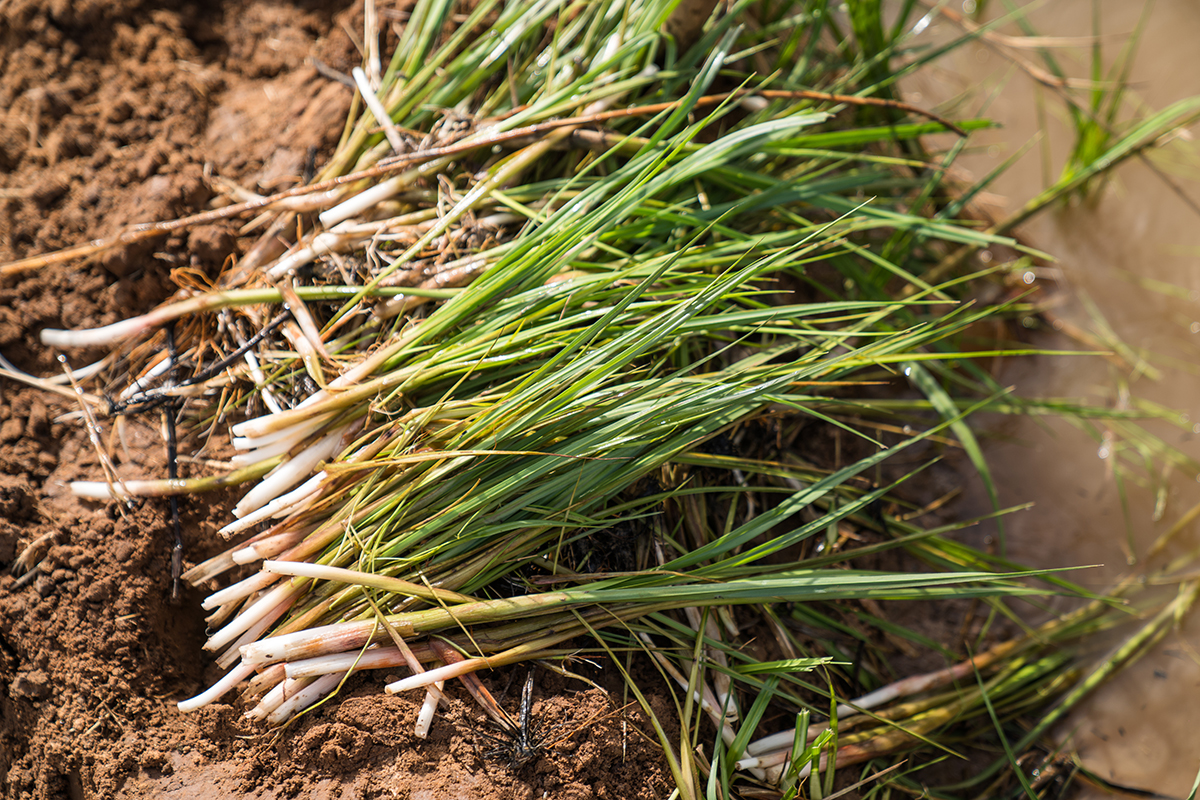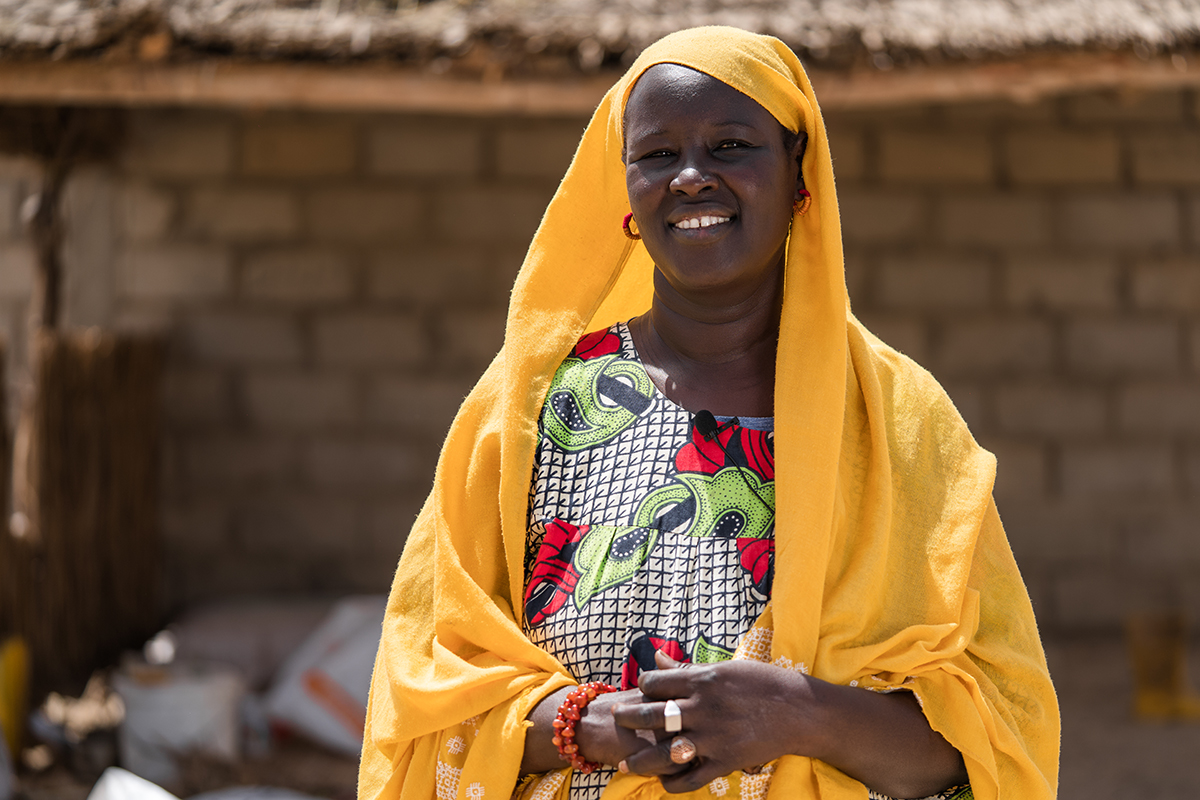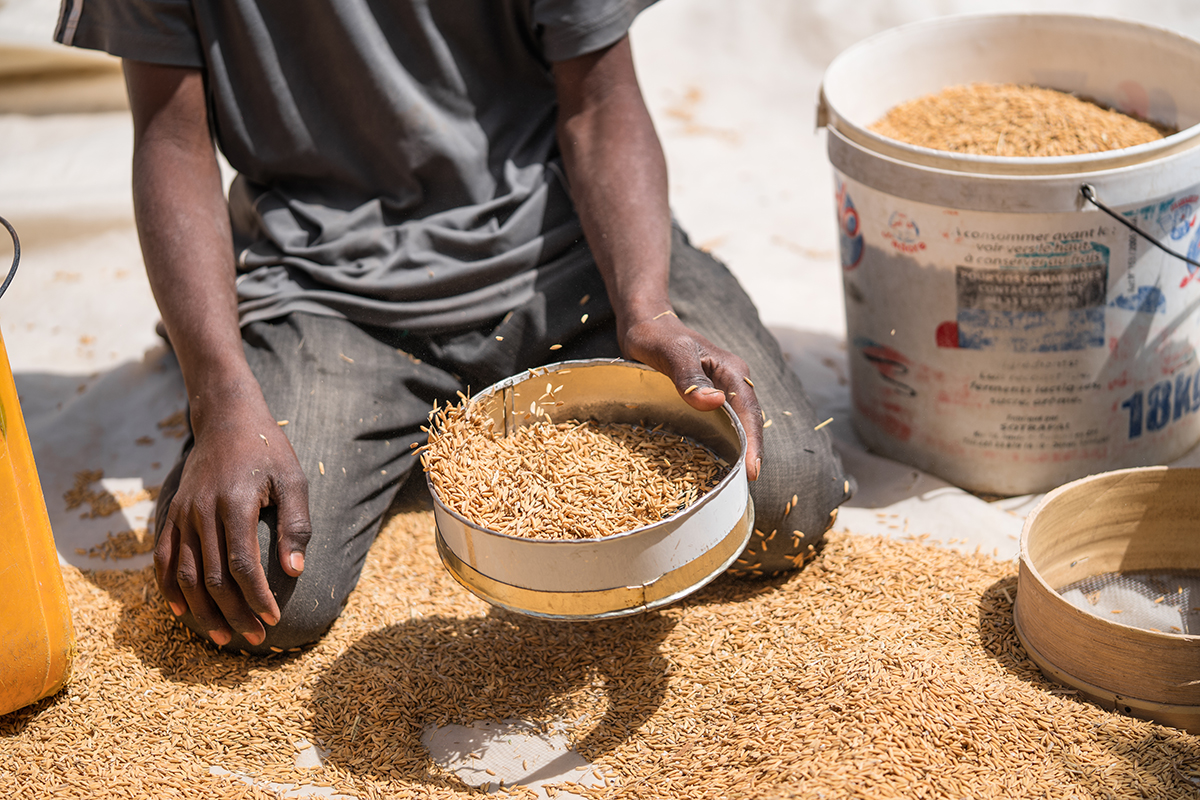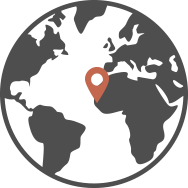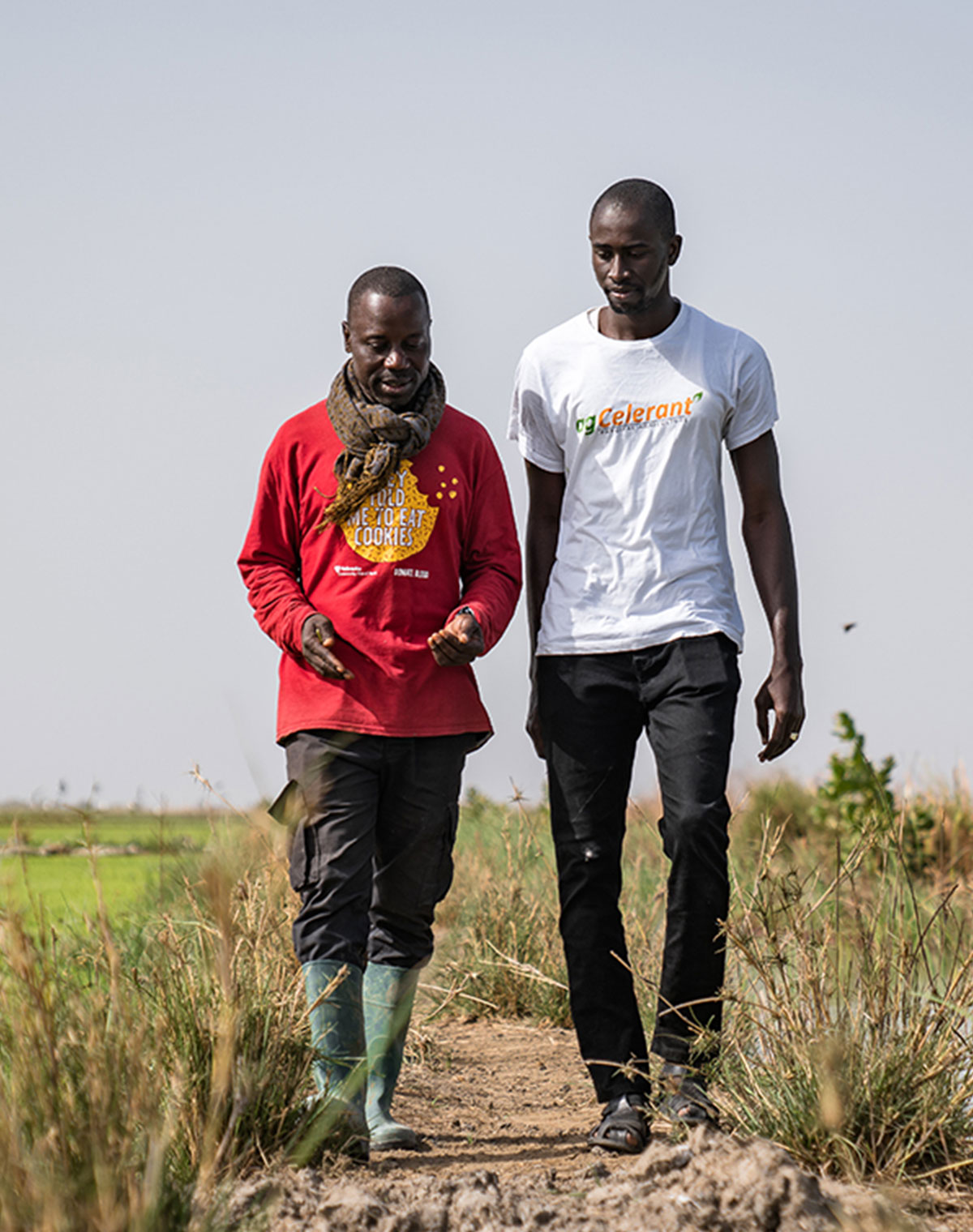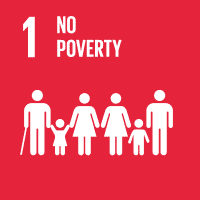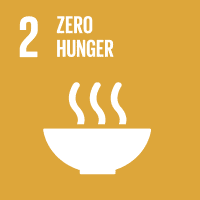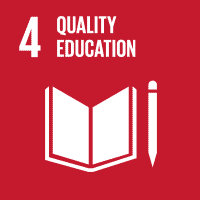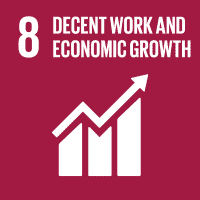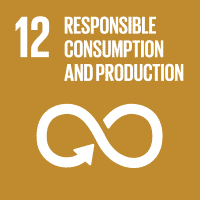Assane Diop stands thigh-deep in water. He moves forwards slowly, grasping large clumps of grass, ripping them out and throwing them on to the water’s edge. This is how the 48-year-old ensures that the channel around his rice field doesn’t get clogged with weeds and that his seed always has the water it needs. Rice growing is labour-intensive work in the north of Senegal, just a few kilometres away from the Mauritanian border.
But the father of six, who lives in Diama, cannot imagine any other life. His father was a rice farmer too and passed on all he knew to his son. ‘Rice is hugely important. The harvest gives us the money we need to be able to send our children to school and offer them a decent future.’ Diop owns three hectares of land. In 2011, he got together with 34 other rice farmers and founded a cooperative called Mbole Mooy Dalé. The name comes from a saying in Wolof, the most widely spoken language in Senegal, and means ‘Together we are stronger’. Together they farm 115 hectares. Although that is equivalent to 161 football pitches, the cooperative is still only small fry – of no interest to lenders. Nobody wanted to take the risk of supporting unknown smallholders. But access to cash is vital for a good harvest. Without funding, cooperatives are unable to invest and grow.
